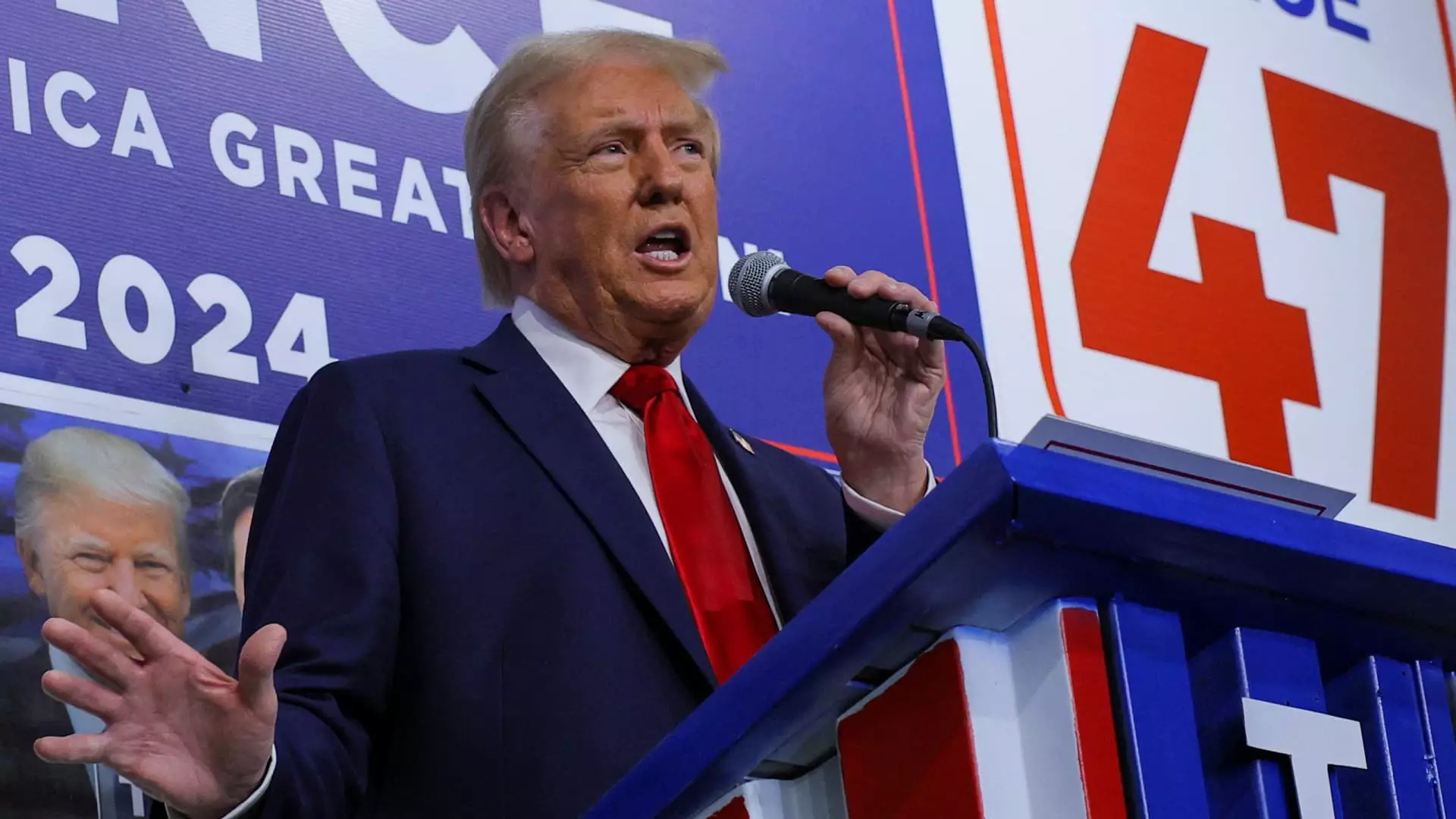The economic debate surrounding universal tariffs has resurfaced, igniting discussions that transcend political affiliations. Recent polling data highlights a noticeable divide in public sentiment regarding such policies, particularly linked to former President Donald Trump’s proposed tariff strategies. Understanding the implications of these opinions is critical for candidates navigating the complex landscape of American economic policy.
A recent NBC News poll reveals a striking trend: a majority of voters express resistance to candidates advocating for universal tariffs. About 44% of respondents indicated that they would be less inclined to support a candidate who promotes a blanket 20% tariff on imported goods. In contrast, only 35% believe they would be more supportive of such a candidate, while 19% are indifferent. This data, collected from a sample of 1,000 registered voters with a margin of error of 3.1 percentage points, serves as a reflection of public anxiety towards unilateral tariffs.
The political landscape is sensitive to these insights, as candidates must carefully assess voter opinions to refine their platforms. The reluctance from voters, coupled with the ongoing economic concerns, suggests that a hardline tariff approach may not resonate well during elections. As public awareness of economic implications grows, candidates may reconsider ambitions to promote aggressive tariff measures.
Despite public discontent, Trump remains steadfast in his support for high tariffs. During a recent interview, he maintained that imposing steep tariffs would incentivize companies to relocate manufacturing operations to the U.S., ostensibly bypassing tariff costs. Trump’s strategy, characterized by the belief that extreme tariffs will attract businesses seeking to avoid penalties, is seen as a central theme of his campaign.
However, this rhetoric raises important questions about the viability of such economic policies. Critics of Trump’s approach, including members within his own party, argue that blanket tariffs might drive inflation upwards. Price increases resultant from tariffs can disproportionately impact consumers, which contradicts the very essence of promoting economic growth. Republican Senate Minority Leader Mitch McConnell has openly criticized such policies, insisting that tariffs increase costs for American households.
Economists voice particular concern over the implications of broad tariffs on the economy. The notion that businesses will relocate to the U.S. to avoid tariffs is, in their view, overly simplistic and doesn’t consider the larger dynamics of global trade. Import costs ultimately trickle down to consumers, thereby inflating prices across the board. This situation could pose a significant risk to the recovering economy, particularly as inflation has only recently shown signs of moderation.
Trump’s tariff blueprint does not only target imports broadly; he has proposed a significant 60% tariff on goods from China, framing it as part of a strategic economic war. Though the intention behind these policies aims to boost domestic manufacturing, the nuanced economic reality suggests that such tariffs may do more harm than good.
The backlash against Trump’s tariff initiative provides fertile ground for opponents to capitalize on potential voter dissatisfaction. Vice President Kamala Harris has labeled Trump’s proposals as a “Trump sales tax,” galvanizing arguments against sweeping tariff measures. The Biden administration, while retaining some of Trump’s tariffs, has adopted a more focused approach aimed at specific strategic sectors, distancing itself from the universal tariffs proposed by Trump.
Treasury Secretary Janet Yellen outlined this nuanced strategy, emphasizing the importance of a targeted tariff approach, contrasting it sharply with Trump’s overarching plans. This tactical differentiation suggests an evolving dialogue around trade policies, as both parties endeavor to demonstrate their commitment to economic stability while catering to the electorate’s views.
As the debate continues to unfold, the public’s wariness towards universal tariffs presents a pivotal moment for political candidates. With varied opinions influencing the current mood of the electorate, candidates must tread cautiously. The future of tariff policy will likely be shaped not only by economic theory but also by the palpable sentiments of the voting populace. In a time where economic stability is paramount, aligning proposed policies with public opinion becomes an indispensable strategy for electoral success.

